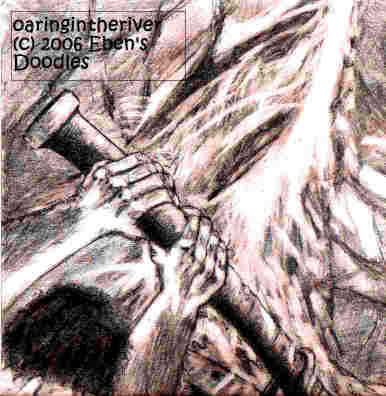
IV
O F
T H E
Q U E S T
O F
T H E
G O L D E N
F L E E C E
A. A . S.
I I

Doves, fortunately, are cheap and swift messengers--much better than runners or even expensive, armed couriers on horseback. For a small fee, a palace scribe trained in Crete pens Jason's short message to the famed Orpheus.
A little white bird with Jason's letter wings its way across mountains and plains, ending its westward journey, drops down to Orchomenae, a large, walled city-state set on a lake beside a wide, rich plain. No one in later times knew how the birds could always find their destinations and then return to their original dovecotes kept by the dove-man, but it was not thought any great secret at the time. A little soil of the place the bird was scheduled to go was put in the bird's nest, with a bit of it in a bag tied round the bird's neck, and after a few days, the bird was released--and the bird invariably flew straight to that place--it was that simple. Of course, Greeks of later times tried it--and it would not work for them. What had the Achaeans known about birds that they, the Greeks who thought themselves smarter, didn't know? Well, they had lost something--knowledge of creatures--passed down from generation to generation, from the Forefather Noah himself, who used doves and was a master dove-man.
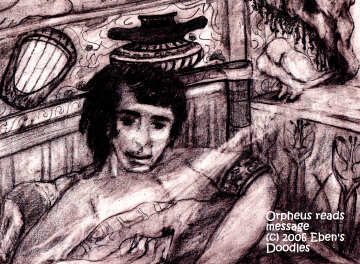
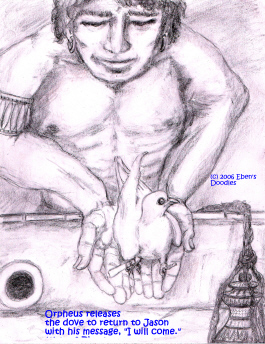
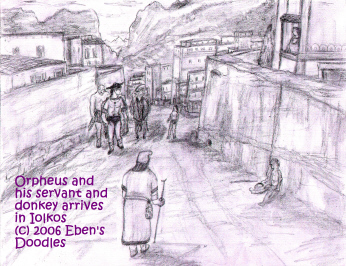
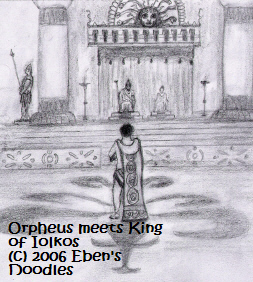
Pausing outside the palace, disappointed, gift-poor Orpheus sits down by the palace wall and sings a song to the public street, whether anyone hears him or not, though there are a few dogs, a pig or two, and small children playing with fish heads providing his only audience. It is a song from the Achaean folk tales about a donkey who acted like a lion and wore royal robes, convincing nobody but himself that he was a lion, king of the beasts.
Simple as it was, it helps calm his spirit after the king's rebuff, and he rises, feeling like he can put the incident behind him.
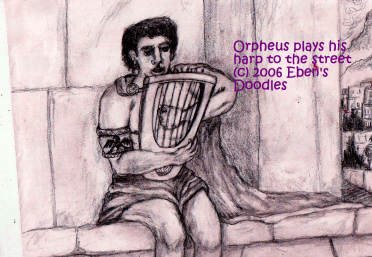
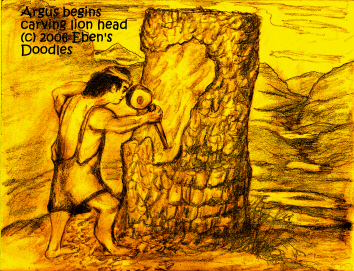
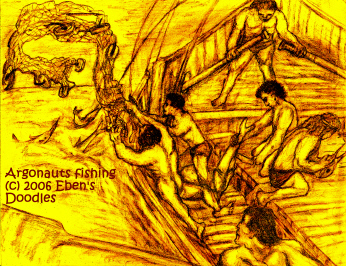
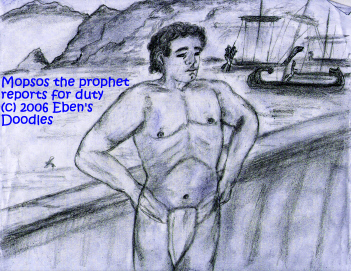
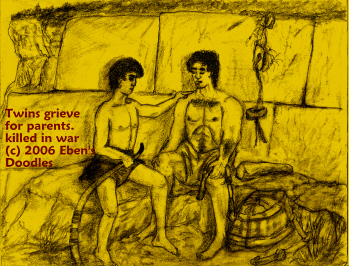
Jason finally, while over-seeing that the lion figurehead is set properly on the bow beam, sets his mind on the following morning. But he tells no one of his plans, except Argus. As for the Argonauts, if they are not in tune with him by this time, they never will be. He is pleased to see, however, how closely they have drawn to him, and knows that very few of them will mistake the date and not be on hand when he boards his Argo.



